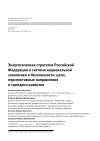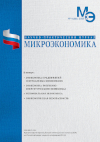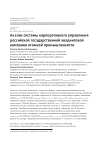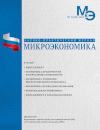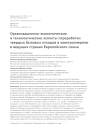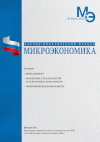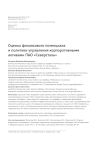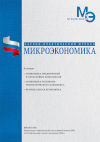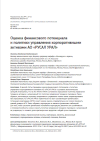The energy strategy of the Russian Federation in the system of national economy and security: goals, promising directions and development scenarios
DOI: 10.33917/mic-4.117.2024.91-102
This article provides an analytical review of the energy strategy of the Russian Federation in the system of national economy and security. Its goals, promising directions and development scenarios in the context of economic sanctions are considered. It has been established that Russia’s transition to alternative fuels will take place no earlier than in ten years. In the coming decade, the domestic energy sector will not rush to take measures to combat global warming, but will begin to think about a gradual shift in the balance from coal and oil to solar, hydrogen and other stations that are safe for nature. Currently, not only Russia, but also other countries are not yet ready to completely abandon fuels with a high carbon footprint in the atmosphere. Oil and gas account for about 54% of the global energy sector.
In the long term, the energy balance will remain for 10–20 years with different forecasts for the development of renewable energy sources. At the same time, the energy transition has begun, and this can be seen by the increased investments in this promising sector. Investments in alternative energy, including solar, wind, and hydrogen, are growing sharply. In particular, it is planned to involve the achievements of previous years in the field of nuclear energy. Russia has begun to prepare for the transition to clean fuel, not only officials, but also representatives of science and industry are working on the process.
References:
1. Lipin A.V. Navigational civil aviation service from takeoff to landing. Publishing House St. Petersburg State University of Civil Aviation named after Chief Marshal of Aviation A.A. Novikova, 2016. 153 p.
2.NPP GA USSR and NSD GA USSR//History and Information Portal of the International Public Movement «Air Navigation without Borders». URL: https://ovdrf.ru/page/744
3. Stalin I.V. Writings. T. 18. Tver: Soyuz Information and Publishing Center, 2006.



